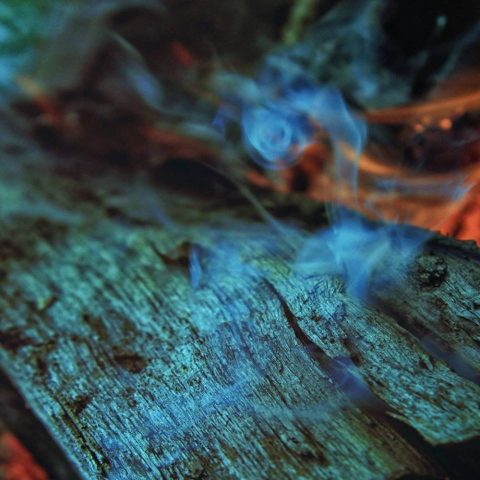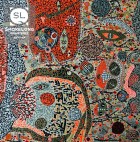When did our narrator begin whistling? Who taught them this craft? Tell me about when you learned to whistle.
I don’t remember when I learned to whistle, or whether anyone explicitly taught me. Did I observe my dad whistling as he shaved in front of the bathroom mirror? Mr. Rogers? Cartoon characters like the lonely little unicorn on a movie I loved, walking through a forest, trying to be brave? My memories of whistling operate as though there was no before—as though I just dropped into the experience.
Like the narrator, I believed I could communicate “in whistles,” that I could say whatever sentence I wanted. I’d bug adults: “What am I saying? What am I saying?” I rejoiced if they got it, and was genuinely shocked when they didn’t.
The subject of language and translation is important in this story. Aunt Franny replaces familiar endearments with unfamiliar Hebrew phrases so suddenly it’s hard for the narrator to catch up, to sort out her feelings. The narrator accepts some Hebrew words, but refuses others: notably her aunt’s new name. Her comfort zone is her whistle language. Maybe she thinks she and Aunt Franny can meet there, in this amorphous, borderless space.
What does Aunt Franny paint with our narrator at the end of the story? The violet swirling into muddy green seems to indicate a deeper significance, if not a clear intention.
When I think of painting with watercolors as a child, it’s always the jar of water I remember—not my subject matter. That stage at the beginning when the water is clean and ready. That first dip of the paintbrush, when the paint drops in bright and saturated, then dissipates. Soon—sooner if you’re painting with several colors—the water becomes bruise-colored, opaque. The only way you can get back to that first shock of color cutting through clear, of course, is to start again.
I don’t know what Aunt Franny is painting, because the narrator doesn’t know. Earlier, she’d have been captivated by whatever Aunt Franny decided to make. But now the narrator is in a state of confusion and upset. She stares at her own paper and picks a color—red—that feels like love. All she gets is a reminder that Aunt Franny refuses her old name—and a reminder of her own sore throat.
How did Aunt Franny come to marry a man she has never met? Was this an arranged marriage? This disagreement seems antithetical for the family, and the mother leaves the house entirely. Where might she go?
The narrator is privy to a series of clues that something is extremely wrong, that something has already changed for her aunt, that an even more extreme change is on its way. Aunt Franny and the narrator’s mother did not grow up in a religious household. The implication is that in her pain, Aunt Franny has turned to an extreme form of religion foreign to the rest of the family, one that involves matchmakers, an ultra-Orthodox community, imminent departure.
As for the narrator’s mother, I imagine she’s experiencing a number of warring emotions. Concern for her sister. Anger at this sudden, extreme decision. Abandonment and its accompanying duo, grief and fear.
I don’t think the narrator would be able to imagine where her mother might go when she drives away, and because of this, I can’t either. I’m too much in the narrator’s point of view to venture a guess. When I was little, I don’t remember thinking much about my parents’ interior lives and/or whereabouts, besides what they told me. Sometimes—often—my mom was very late to pick me up from school. Did I imagine what she’d been doing, what was going on? Not at all. I just made up games to mitigate my anxiety: when X number of green cars go by, she’ll be here, etc. When they weren’t with me, I pictured both of my parents driving, driving, staring straight ahead. Their bodies passive but infused with authority, the car covering ground.
When are some appropriate times to whistle? List as many for me as you can.
Having lived in different parts of Manhattan and Brooklyn for the past twenty years—and as a woman living in the world—it’s hard to think whistling without immediately conjuring the times it is unwanted. Men and their wolf whistles on the street. Even the supposedly benign scenario of an adult whistling tunelessly “to themselves” can take on a sinister cast. In the city, in public, there is rarely noisemaking without an audience. And so an adult whistling in public feels (to me) either overtly aggressive—an imperative to look, the threat of an unwanted or intimidating interaction—or suggests the urge to take up more space. Sensory space. An encroachment even into the aural sphere.
Sadly, my view of where I, myself, could whistle seems very narrow: “alone on a long car ride.” “In my living space if no one but my dog is around.” “In front of my partner or a friend, to demonstrate the ‘whistle language’ of this story.”
Of course, these are all my own anxieties, and anxiety is, by its very nature, constricting. That may be part of what drew me to write about this young narrator and her whistle language. There’s a level of freedom and experimentation to the way most kids whistle. Something expansive. And if it’s attention-seeking, well, I believe kids automatically “deserve” attention in a way adults do not. The narrator feels constrained by the tension around her and reaches for something that might cut through it. Along with the whistle language comes the inherent hope that people will listen closely, listen differently. That they’ll engage their imaginations, pay attention to rhythm and tone. Some of the most authentic and meaningful forms of communication can occur here, in this space between spoken, shared language and unfiltered noise.


